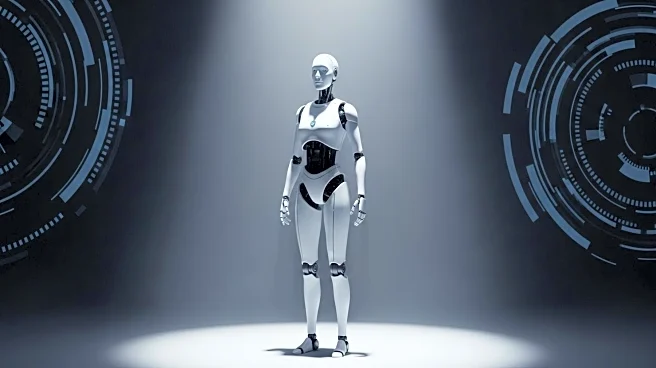What's Happening?
The introduction of an AI character named 'Tilly' has sparked significant controversy in Hollywood, leading to public denouncements from major unions such as SAG-AFTRA and Equity. The uproar began after talent agents showed interest in the AI character following its reveal at a Zurich festival. Unions have raised concerns about the lack of consent and unclear data origins associated with the creation of 'Tilly'. The statement 'Tilly is not an actress' was made by Shannon Sailing, an audio and new media organizer at Equity, during a BBC Radio interview. This remark has highlighted fears that AI can be marketed and utilized like human talent, potentially impacting contract negotiations for those in casting and payroll.
Why It's Important?
The controversy surrounding 'Tilly' underscores the growing tension between technological advancements and traditional performer rights. The use of AI in entertainment raises ethical and legal questions about consent and the use of performers' work without clear authorization. This situation could lead to significant changes in industry policies, with unions pushing for regulatory protections and transparency regarding training data and licensing. The debate is shaping policy proposals that could redefine how synthetic performers are integrated into the industry, affecting livelihoods and revenue models for agents and creators.
What's Next?
Unions are expected to accelerate rulemaking efforts, potentially exploring GDPR and contract amendments to ensure transparency and consent in the use of AI characters. This could include mandatory consent clauses and compensation for the use of datasets derived from performers' work. The industry faces a critical decision on whether to accept new rights and fees or pursue alternative revenue models. The outcome of this dispute may set a precedent for future AI-related developments in entertainment.
Beyond the Headlines
The ethical implications of AI characters like 'Tilly' extend beyond immediate industry concerns, touching on broader cultural and legal dimensions. The debate highlights the need for clear guidelines on the use of AI in creative fields, balancing innovation with respect for human contributions. This could lead to long-term shifts in how technology is perceived and utilized in entertainment, potentially influencing public policy and societal attitudes towards AI.









